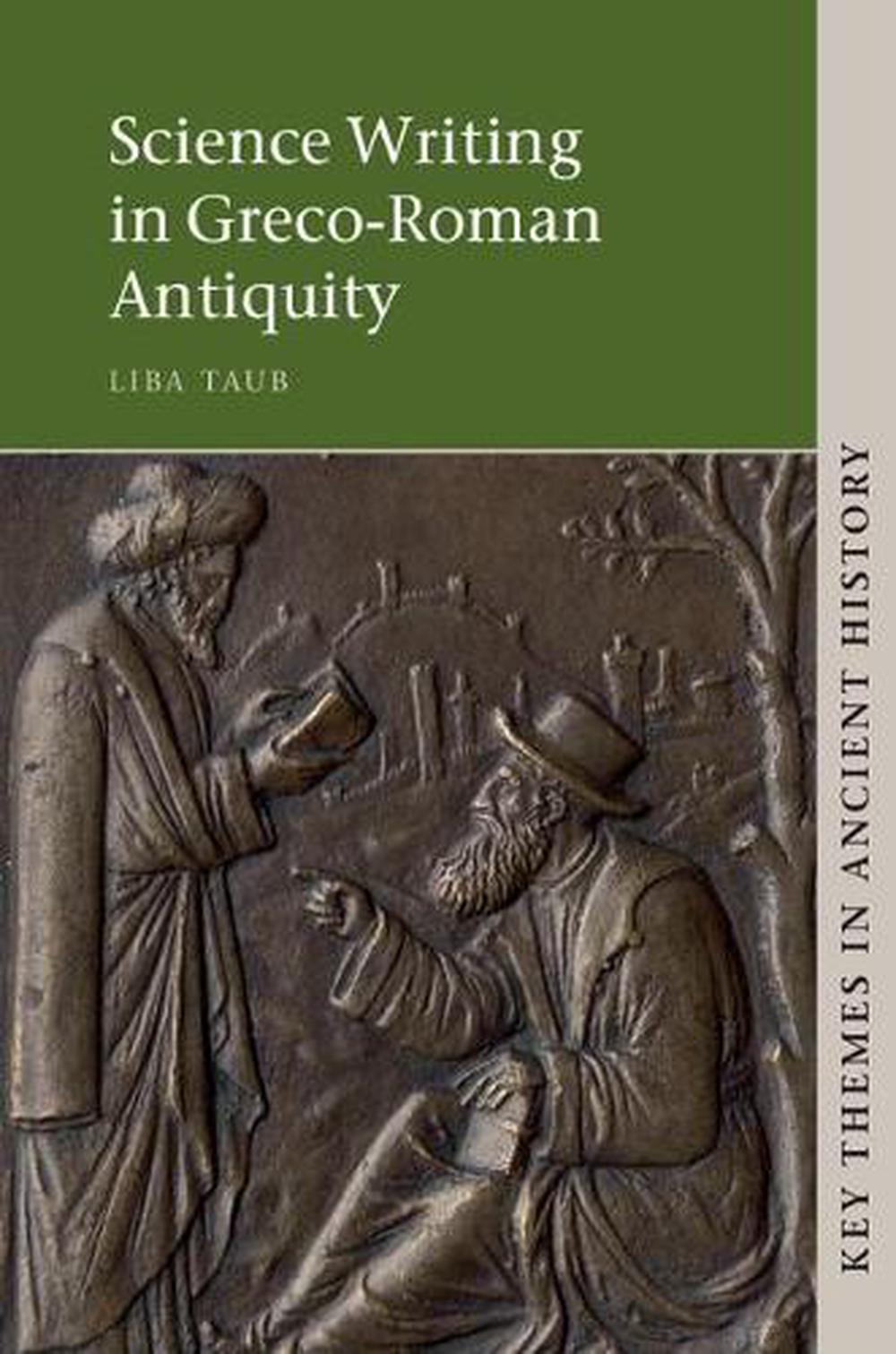
Science Writing in Greco-Roman Antiquity
by Liba Taub
This book explores the surprising variety of texts used to communicate scientific and mathematical ideas in the ancient Greek and Roman worlds. Each chapter concentrates on a particular genre - poetry, letter, encyclopaedia, commentary and biography - and considers the broader cultural contexts in which these texts were produced and read.
Paperback
English
Brand New
Publisher Description
We access Greek and Roman scientific ideas mainly through those texts which happen to survive. By concentrating only on the ideas conveyed, we may limit our understanding of the meaning of those ideas in their historical context. Through considering the diverse ways in which scientific ideas were communicated, in different types of texts, we can uncover otherwise hidden meanings and more fully comprehend the historical contexts in which those ideas were produced and shared, the aims of the authors and the expectations of ancient readers. Liba Taub explores the rich variety of formats used to discuss scientific, mathematical and technical subjects, from c.700 BCE to the sixth century CE. Each chapter concentrates on a particular genre - poetry, letter, encyclopaedia, commentary and biography - offering an introduction to Greek and Roman scientific ideas, while using a selection of ancient writings to focus on the ways in which we encounter them.
Author Biography
Liba Taub is Director and Curator of the Whipple Museum and the Head of the Department of History and Philosophy of Science at the University of Cambridge. She was awarded an Einstein Foundation Visiting Fellowship to support her work with the Topoi Excellence Cluster (Berlin), and has been the recipient of the Joseph H. Hazen Education Prize of the History of Science and a University of Cambridge Pilkington Prize for excellence in teaching. She is the author of Ptolemy's Universe: The Natural Philosophical and Ethical Foundations of Ptolemy's Astronomy (1993), Ancient Meteorology (2003) and Aetna and the Moon: Explaining Nature in Ancient Greece and Rome (2008).
Table of Contents
Introduction; 1. Poetry; 2. Letter; 3. Encyclopaedia; 4. Commentary; 5. Biography; Conclusion; Bibliographical essay; Appendix 1: arithmetical epigrams from Book 14 of The Greek Anthology; Appendix 2: Eratosthenes' Letter to King Ptolemy.
Review
'Taub explores diverse genres of surviving texts in Greek and Roman science writing from antiquity: poetry, letters, encyclopedias, and commentaries. By considering the actual texts, as well as the ideas being conveyed and taught, the author is able to delve into ancient scholarly communication through a route of discovery that owes its insights to a fresh perspective, using representative extant texts as case studies to discuss the writers' motivations and ways of elucidating truth. ... The narrative structure of this book reveals a fascinating unity of the ancients' scientific thought ('philosophy') while noting incomplete or contradictory evidence, with a nod to diversity in mentioning what little is known about the role of women in the scholarly record. The selected texts are situated in their historical context, providing an accessible yet challenging intellectual history for any individual interested in the history of science.' Choice 'Taub explores diverse genres of surviving texts in Greek and Roman science writing from antiquity: poetry, letters, encyclopedias, and commentaries. By considering the actual texts, as well as the ideas being conveyed and taught, the author is able to delve into ancient scholarly communication through a route of discovery that owes its insights to a fresh perspective, using representative extant texts as case studies to discuss the writers' motivations and ways of elucidating truth. ... The narrative structure of this book reveals a fascinating unity of the ancients' scientific thought ('philosophy') while noting incomplete or contradictory evidence, with a nod to diversity in mentioning what little is known about the role of women in the scholarly record. The selected texts are situated in their historical context, providing an accessible yet challenging intellectual history for any individual interested in the history of science.' Choice
Review Quote
'Taub explores diverse genres of surviving texts in Greek and Roman science writing from antiquity: poetry, letters, encyclopedias, and commentaries. By considering the actual texts, as well as the ideas being conveyed and taught, the author is able to delve into ancient scholarly communication through a route of discovery that owes its insights to a fresh perspective, using representative extant texts as case studies to discuss the writers' motivations and ways of elucidating truth. ... The narrative structure of this book reveals a fascinating unity of the ancients' scientific thought ('philosophy') while noting incomplete or contradictory evidence, with a nod to diversity in mentioning what little is known about the role of women in the scholarly record. The selected texts are situated in their historical context, providing an accessible yet challenging intellectual history for any individual interested in the history of science.' Choice
Promotional "Headline"
This book explores how science and mathematics were communicated in antiquity in a wide variety of texts, including poetry, letters and biographies.
Description for Bookstore
This book explores the surprising variety of texts used to communicate scientific and mathematical ideas in the ancient Greek and Roman worlds. Each chapter concentrates on a particular genre - poetry, letter, encyclopaedia, commentary and biography - and considers the broader cultural contexts in which these texts were produced and read.
Description for Library
This book explores the surprising variety of texts used to communicate scientific and mathematical ideas in the ancient Greek and Roman worlds. Each chapter concentrates on a particular genre - poetry, letter, encyclopaedia, commentary and biography - and considers the broader cultural contexts in which these texts were produced and read.
Details

